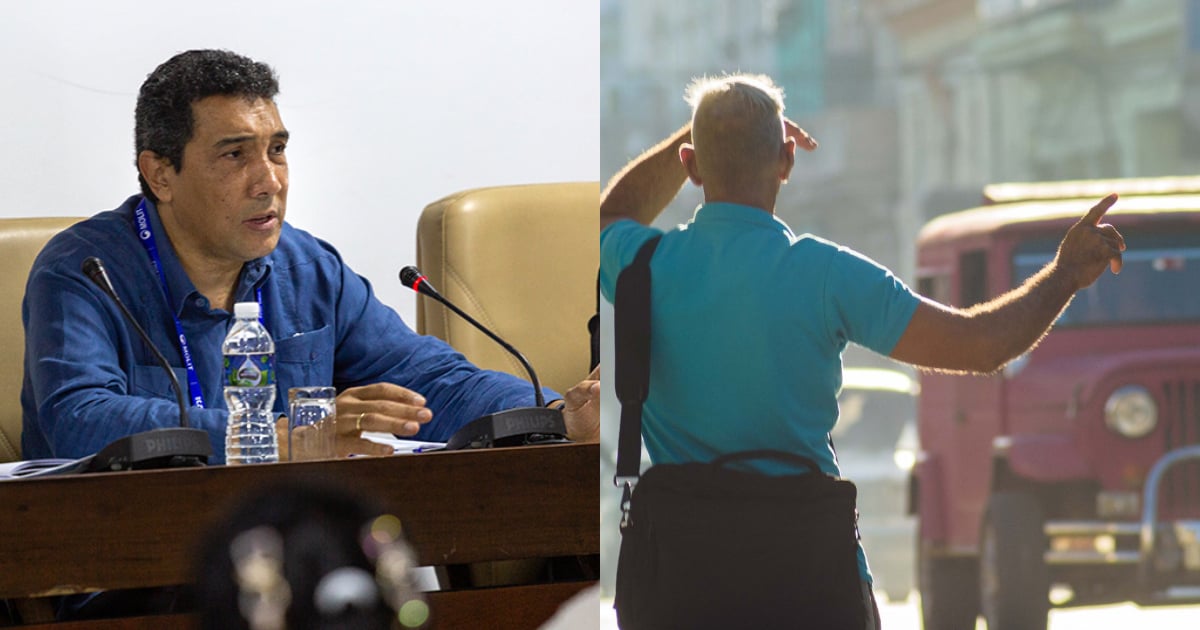
Related videos:
The Minister of Transportation of Cuba, Eduardo Rodríguez Dávila, has issued a reflection in which he succinctly expresses his personal accountability in the opening line: "2024 was not the year we dreamed of," he remarked before proceeding to list the goals he had set. Ultimately, his statement concluded with a measured self-criticism: "The reality is that we are ending a year in which some of the indicators for various types of transportation in the country have not been met."
Staying true to the propagandistic tradition of the Castro regime, Rodríguez Dávila speaks of "achievements," but focuses on efforts rather than results. "There has been a greater effort across all branches of transportation and throughout the country, with Cuban transport workers showing dedication under increasingly adverse conditions."
In other words, it can be inferred from those words that the positive aspects of 2024 were due to "the commitment of the transport workers" rather than any real improvement in street-level transportation, something that all Cubans can attest to.
Also within the limbo of efforts, the minister places "the proposals, incentives, and execution of processes," which, according to his calculations, should lead to "projects that will enable us to improve transportation in Cuba."
Framed within their "results" (poor, as Cubans know), the minister highlighted "the expansion of electric tricycles to other provinces, the reopening of some railway services, which are still far from meeting needs; the process of legalizing vehicles assembled from parts and pieces (VAP), which remains slow; and the update of the policy for the commercialization of vehicles in Cuba, which comes into effect today (January 1st), are just a few of the initiatives that have been promoted despite everything," he noted.
According to the minister, "as in previous years, and mainly due to the contribution of aviation, significant foreign currency inflows to the country's economy were generated in 2024, by providing airport services that connect us with the world and enable the development of tourism." It is understood that he implies there have been no advancements, but rather a continuation of the status quo. In any case, he does not provide figures to assess how much revenue was expected and how much was actually collected.
In his assessment of the past year, which will be remembered as one of the most challenging for public transportation in Cuba, with airports even issuing alerts due to fuel shortages, the minister expressed satisfaction with the recent establishment of "an early warning network regarding what is occurring in each province and municipality across the Cuban geography." This practice is common among public and private companies managing public transportation in the civilized world and is arriving in Cuba in 2024, after 65 years of communist rule.
As is often the case in the speeches of PCC leaders, the Minister of Transport promises that 2025 will be "a year in which we will overcome obstacles and make progress, aware that the best way to resist is to develop; and when moving forward, we must not rely primarily on resources we do not have, we must do so at full speed. That is what the complex times we are living in demand," he noted, without explaining how progress will be made without fuel.
Exhibiting textbook cynicism, the minister concluded with a wish: "May we continue to build dreams in 2025, with the willingness and determination to make them a reality," he noted without mentioning in his post how he plans to move passengers across the country without fuel.
Contrary to what usually happens in these cases, the minister's post was filled with expressions of support, with only one detractor standing out—a user who criticized him for allocating fuel for the march on December 20, led by Díaz-Canel.
The latest measure announced by the Ministry of Transport relaxes the import, sale, and transfer of vehicles with the aim of modernizing the vehicle fleet and easing access to transportation.
Published in Official Gazette No. 128 of the year 2024, this regulation will come into effect on January 1, 2025, and aims to update a regulatory framework that has remained rigid for decades, with the declared goal of improving transportation management and easing access to vehicles. However, these measures, while significant on paper, appear to be inadequate for tackling the deep-rooted issues of the transportation crisis on the island, characterized by decades of state inefficiency, unaffordable prices, and excessive restrictions.
Main measures
Flexibilization of property transfer: The transfer of vehicles is permitted between individuals and legal entities, including religious organizations and private companies. However, the sale of state-owned entities to individuals will require approval from the Council of Ministers.
New tariff rates: Electric and low-consumption vehicles will have preferential tariffs of 10%, while internal combustion vehicles will face rates of up to 30%, depending on their category and segment.
Reduction of trade margins: The trade margins for state-importing and marketing entities are limited to 20%, with the intention of reducing final prices.
Incentives for electric vehicles: The importation of electric cars and their charging infrastructure is prioritized, with reduced taxes and logistical support for acquisition.
Restricted access by frequency: Each individual is permitted to import only one vehicle every five years, with additional limitations for luxury vehicles.
Marketing of used cars from tourism: Vehicles that have completed their cycle in the tourist rental market will be offered in national currency, with prices based on the correlation to the secondary market.
Filed under: